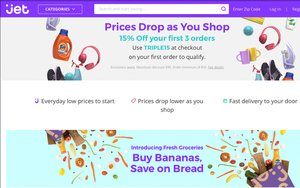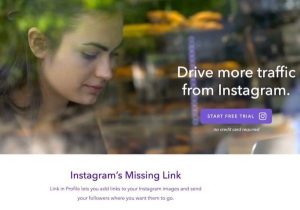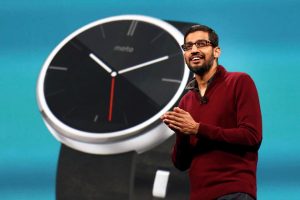Today’s consumers demand personalized and authentic experiences on their preferred channels, in ways that matter to them. Columnist Chandar Pattabhiram explains how marketers can adapt to these consumer needs to win their loyalty.

Marketers must be, by nature, adaptive. Our practice today looks much different from the way it did five years ago, and it will look even more different just one year from today.
For those who, like myself, have been in the field awhile, the phrase “yesterday’s marketing” refers to print ads and billboards — an era before tracking or justifying ROI (a problem that has in many ways been rectified in today’s digital world). For those who are newer to the field, “yesterday’s marketing” was “spray and pray.” Today, it has become inconceivable to blast out the same message to every consumer.
Omnichannel used to be the “adaptive” marketing strategy du jour. The intention was to help marketers reach their customers on every channel. However, that strategy is fundamentally flawed because it’s the bare minimum approach to engagement, and it certainly does not enable marketers to interact with the individual. Today, in the Engagement Economy, consumers demand personalized and authentic experiences on their preferred channels and in ways that matter to them. In other words, buyers expect brands to adapt to their needs to win their loyalty.
Marketers, and anyone involved in the customer experience, must adapt to adaptive marketing. Sounds redundant, right? But adaptive marketing is essential for success in today’s digital world. In the Engagement Economy, where everyone and everything are more connected than ever before, it shouldn’t be who your customers are that determines the messages they receive, it should be what they do.
The key to adaptive marketing in the Engagement Economy is to listen, learn and engage at scale. Here’s why.
Listen to me
Raise your hand if you have a Netflix account. Good, I thought you did! I do, too, and anyone I work with knows that I am a big fan of movies. If Netflix were marketing to me based on “who” I am, they would peg me as a 40-something male who probably likes action movies, classic dramas and smart comedy. And they would use predictive technology to supply me with suggestions to match.
But Netflix knows better than to take a straightforward predictive approach to marketing. I am a husband to a beautiful wife and two lovely daughters, all of whom share my login. Netflix is listening to what I do at every step of the way and very smartly marketing to me not based on my demographics, but based on my behaviors. For this reason, “Suggestions for Chandar” looks very different from what you would expect.
Learn from me
Netflix has learned that the login belonging to Chandar Pattabhiram is most frequently used to watch “chick flicks.” I’m not kidding — “How to Lose a Guy in 10 Days,” “Bridget Jones’s Diary,” all of those titles flood my feeds. By paying attention to my behaviors, Netflix knows that the latest action film or romance-free classic movie just won’t cut it because my wife is going for a romcom or bust!
The same applies to your customers. Whether these customers are individual consumers or businesses, you must pay attention to the ways in which these groups are interacting with your brand. For individual consumers, each one is different, with different preferences and desires. For businesses, each person within an organization is unique, with varying needs.
This is where adaptive marketing is essential. Marketers must continuously listen, learn and engage with their customers, so that each future interaction builds off the last and feels personal at the individual level. For me, if tomorrow I tell my wife that she must set up her profile within Netflix to watch her films, the amount of early-career Matthew McConaughey movies showing up in my “Because You Watched” will eventually disappear. That’s because Netflix will be adapting to my behavior.
During my school days in the ’90s, I learned marketing principles from Harvard professor Michael Porter. Today, we can learn marketing principles from Harry Potter! “Potterian” marketing borrows its name from the Harry Potter series, a story that evolved with its audience. Readers just a few years older than my daughters felt that they were growing up with the characters and remained engaged thanks to the books’ many twists and turns. That is how we must think of our marketing: a continuous loop of adaptive engagement.
You’re probably thinking, What is the “loop of adaptive engagement,” and why should I care? We are on the cusp of a new era where learning is influenced by customer behavior and predicts the next behavior. Artificial Intelligence (AI) technology is responsible for the development of this new age. Marketers now have the tools that will give them insights into customers’ behaviors, allowing them to engage with them on their preferred channels and in personalized ways, creating a long-lasting loop of adaptive engagement.
Engage with me
Consequently, the final step for success in the Engagement Economy pertains to the actual engagement. Are you using what you’ve learned to reach out to your customers with relevant messages at the right time to add real value? And — with the proliferation of touch points — are you doing this at scale?
Today’s customers mandate personalization, and to personalize on a vast level, marketers must focus on systems of behaviors. I’ve always marveled at the term, “Customer Relationship Management,” because the systems are used for transactional purposes and do not interact with customers directly. For marketers to have a competitive edge in adaptative marketing, they need to use systems of behavior. Systems of behavior, such as digital marketing platforms, can capture customers’ behaviors, enable marketers to adapt to those behaviors and ultimately help them to win in the Engagement Economy.
We all must be aiming for adaptive systems that can ingest customer behavior and seeking to adapt and react accordingly. Listening, learning and engaging through adaptive marketing is the only way for marketers to succeed in the Engagement Economy.
Some opinions expressed in this article may be those of a guest author and not necessarily Marketing Land. Staff authors are listed here.
Marketing Land – Internet Marketing News, Strategies & Tips
(71)







